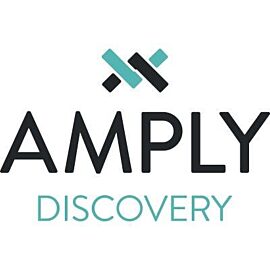Amply Discovery
Amply Discovery is improving animal health to create a more healthy and sustainable agrifood market.
They are achieving this through their drug discovery platform. The platform locates novel antimicrobials to solve critical health issues for production and companion animals, micro-livestock and aquaculture.
Addressing the rising threat of antimicrobial resistance (AMR) requires a holistic and multisectoral approach. This is because antimicrobials used to treat various infectious diseases in animals may be the same (or like) those used in humans.
Farm animals are exposed to considerable quantities of antimicrobials and can act as an important reservoir of AMR genes, which can be transmitted to humans through:
The food chain
Direct animal contact
The environment
There is a need for novel antimicrobials that can both:
kill resistant organisms and;
not contribute to the long term build-up of AMR.
Antibiotics are worth $47 billion annually to the farming industry, both as growth promoters and preventative medications, leading to their misuse and overuse in the world’s 70 billion animals.
Sales of antibiotics represent approximately 24% of the total animal health market and between 7-43% of leading animal health companies’ total revenue, with figures even higher if expanded to include all antimicrobials.
AMPLY meets this challenge by mining digital biological data to derive a near limitless supply of novel anti-infectives - shaped by evolution - that can kill resistant bacteria, viruses and fungi so rapidly they bypass natural mechanisms of resistance.
The entire drug discovery chain is digital - from the data we mine, to the production of the drugs.
This innovation leverages:
Digital biology
Unique AI techniques taken from the predictive marketing and asset management industry sectors
Modern drug creation technology
It then finds and “prints” tailored novel, anti-infective compounds that are found in nature from scratch.
One of the lead disease targets is a complex infection that impacts milk production, a $2 billion a year market with an urgent need to combat resistant disease threats.
The team says: “We love that we can help to improve animal health and in doing this we are generating more sustainable, clean, and healthy food for the world.”
Currently, what are your biggest challenges?
While we can vastly decrease the burden of drug discovery using our unique approach, the long road to market through regulation and trials is expensive and complex. Understanding this process and working out ways to shorten it is one of our biggest challenges.
How has the Seedbed Incubator programme helped you to overcome these challenges?
Our route to market is through partnerships with animal health companies, technical specialists, and industry and commercial experts. Seedbed has helped us to forge these connections: we have already spoken to more than 80 experts across multiple fields, which has helped us to make critical contacts in large animal health businesses.
The quality of the programme and its wide-ranging training has been vital in helping our team improve our business strategy and interactions with potential partners.
We have also identified new market segments to target with our technology, and we are performing testing to find out if these will offer a viable route to a commercial product. Overall, our focus is now much clearer thanks to Seedbed.
